What’s bad for your body is often just as brutal for the Earth.

Some foods come with warnings printed right on the label. Others sneak under the radar, wrapped in marketing, nostalgia, or convenience. But the truth is, plenty of everyday staples aren’t just wrecking hormonal health—they’re also fueling environmental destruction on a massive scale. The connection isn’t always obvious, but it’s there. What drives hormone disruption—like plastic packaging, pesticide overload, or inflammatory fats—often overlaps with what drives pollution, waste, and deforestation.
This isn’t about clean eating perfection. It’s about recognizing how closely your body and the planet are linked. If something disrupts one system, there’s a good chance it’s harming the other, too. And in most cases, these aren’t rare or obscure ingredients—they’re the stuff you probably eat every week without thinking twice. It’s not about shame. It’s about power. Because when you understand how these foods function, you can choose differently—for yourself and for the planet you live on.
1. Processed meats mess with your hormones and fill landfills with waste.

Hot dogs, sausages, deli slices—processed meats are loaded with preservatives, saturated fat, and endocrine-disrupting compounds that have been linked to lower testosterone levels. Nitrates, which are commonly used to preserve processed meats, have been shown to disrupt hormone signaling and vascular function, according to the authors of a report published through NCBI. These meats also tend to spike inflammation, which can interfere with the body’s natural hormone production over time. But it’s not just your hormones taking a hit.
The meat industry, particularly when it comes to processed products, is a major source of methane emissions, water waste, and plastic-heavy packaging. These items are often vacuum-sealed in non-recyclable materials and contribute to an unsustainable food chain built on factory farming. It’s bad for your body and brutal for the planet—and the more processed the product, the worse the impact on both ends.
2. Industrial dairy is packed with synthetic hormones and environmental fallout.
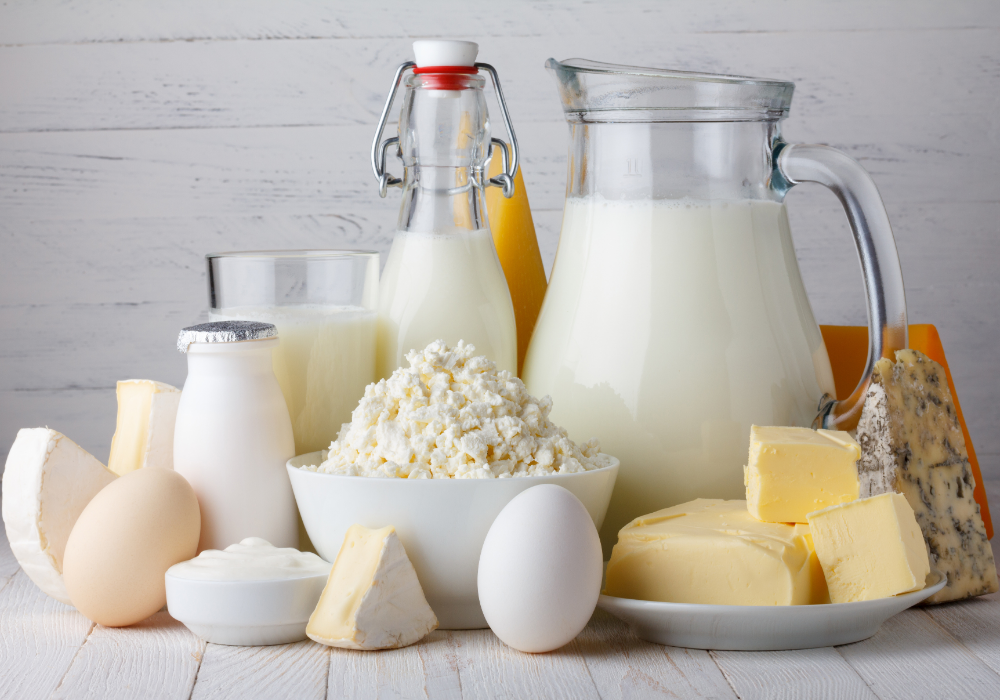
Conventional milk, cheese, and yogurt may seem wholesome, but many are sourced from operations that rely heavily on hormone injections and unsustainable feed practices. Hassan Malekinejad and Aysa Rezabakhsh explain in PubMed Central that rBST, a synthetic hormone used to boost milk yield, can leave trace hormone residues in dairy products and may contribute to hormonal imbalances. Even if your carton says hormone-free, the overall endocrine load from industrial dairy can still disrupt natural testosterone levels, especially if consumed in excess.
Environmentally, dairy is one of the most polluting food industries. Massive amounts of water go into producing just one gallon of milk, and manure runoff from large-scale farms contaminates rivers and streams. Add in the methane from dairy cows and the plastic tubs and wrappers used for most dairy products, and you’ve got a full-spectrum disaster for both hormonal and planetary health. Organic and local options are better—but even then, moderation matters.
3. Soy-based junk food fuels hormone myths and deforestation.
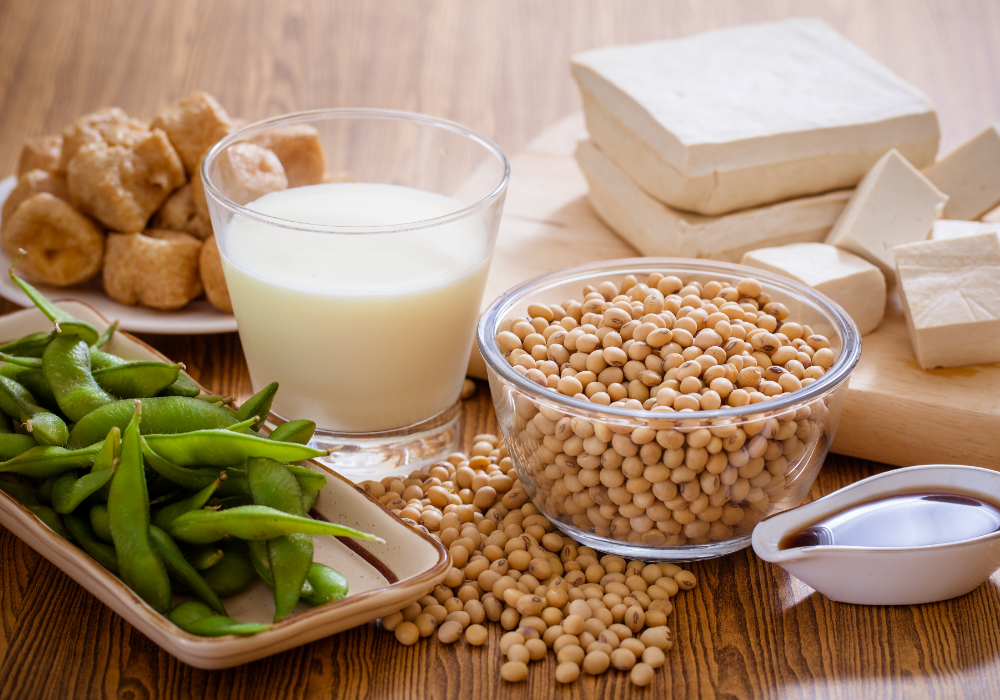
Soy has a bad rep for being estrogenic, but whole, organic soy in moderation isn’t the real issue. The problem comes from hyper-processed soy-based products—soy protein isolate, soy oil, soy fillers—that are stripped of nutrients and packed into energy bars, snacks, and fake meats.
These ultra-processed forms of soy have a different nutritional profile than whole soy, and may influence hormone activity when consumed in excess, per writers at Harvard T.H. Chan School of Public Health. And then there’s the source. Globally, most soy isn’t eaten directly by humans—it’s grown for animal feed or processed foods, and much of it comes from deforested land in Brazil and Argentina. Industrial soy farming contributes to biodiversity loss, pesticide pollution, and soil degradation. It’s not the humble edamame that’s the problem—it’s the way soy’s been industrialized and commodified that creates a double blow to hormones and habitat.
4. Vegetable oils disrupt hormones and destroy biodiversity.
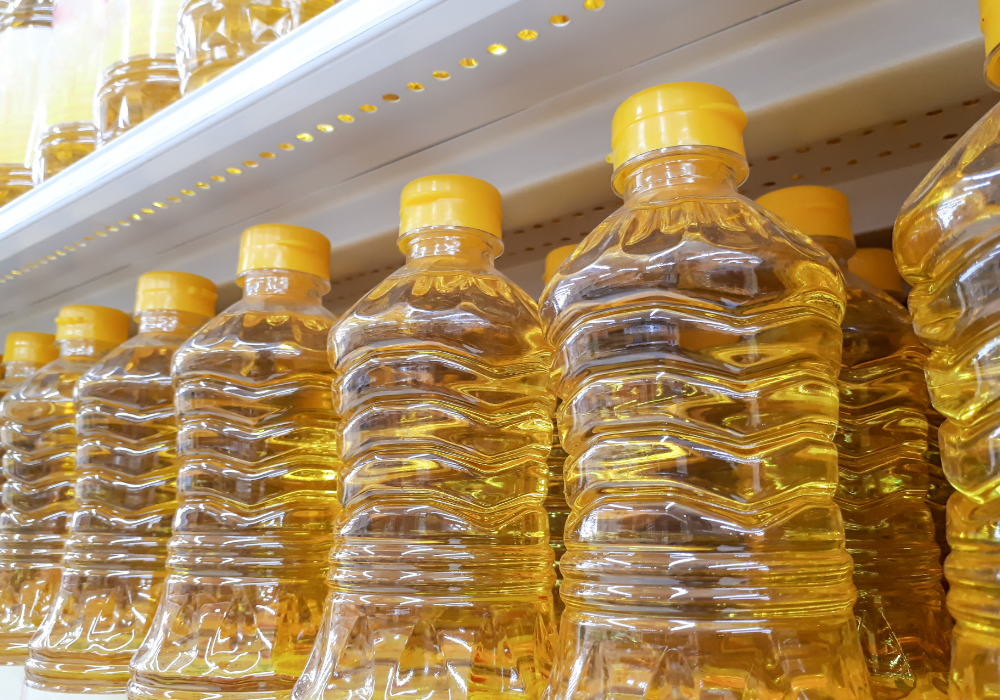
Seed oils like soybean, corn, and especially palm oil are cheap, heavily processed, and found in everything from frozen meals to granola bars. These oils are high in omega-6 fatty acids, which—when consumed in excess—can drive inflammation and throw off hormonal balance, including testosterone. The refining process also involves chemical solvents that leave behind trace toxins. On the environmental side, palm oil is infamous for destroying rainforests and pushing endangered species like orangutans to the brink.
Other seed oils come from pesticide-heavy monocultures that degrade soil and water systems. These oils are everywhere because they’re cheap, not because they’re healthy or sustainable. Cutting back isn’t just good for your hormonal health—it’s a stand against some of the most destructive food systems on the planet.
5. Plastic-packaged foods leach chemicals that mimic estrogen.

It’s not just what you’re eating—it’s how it’s packaged. Foods stored in plastic containers, bags, and wraps often contain traces of BPA and phthalates, chemicals known to act as endocrine disruptors. These compounds can leach into food, especially when heated or stored for long periods. In men, this kind of exposure has been linked to reduced testosterone and impaired fertility.
Environmentally, plastic packaging is one of the biggest contributors to landfill overflow and ocean pollution. Single-use wrappers for chips, frozen meals, or protein bars don’t break down—they just break apart, polluting water and soil and harming wildlife. The same material disrupting your hormones is choking the ecosystems we depend on. Switching to fresh, unpackaged foods whenever possible is a win for both your endocrine system and the environment.
6. Farmed fish carry hormone-altering toxins and pollute marine ecosystems.
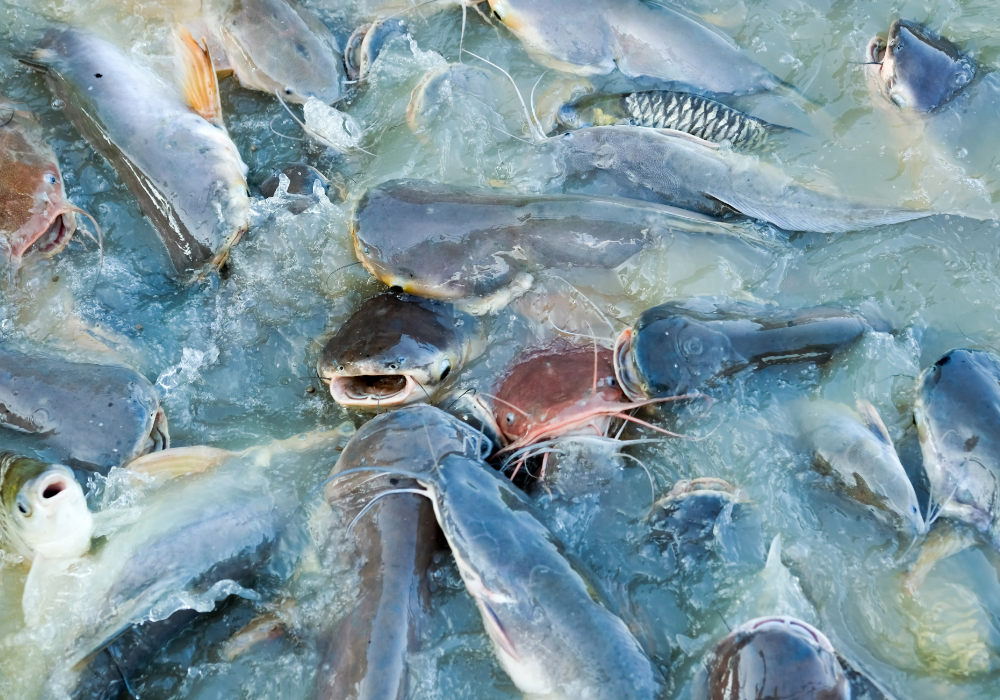
Fish can be a great source of healthy fats, but farmed varieties—especially salmon—come with serious drawbacks. These fish are often raised in crowded pens, exposed to antibiotics, and fed synthetic pigments to improve color. More concerning? They tend to accumulate PCBs and dioxins—endocrine-disrupting chemicals that have been linked to lower testosterone and reproductive issues.
And while the packaging might show pristine oceans, the reality is far messier. Fish farms release waste, excess feed, and disease into surrounding waters, damaging wild populations and coastal ecosystems.
Escaped farmed fish can also disrupt genetic diversity in native species. With overfishing on one side and dirty aquaculture on the other, ethical seafood is getting harder to find. When the ocean’s health is compromised, so is yours—and that convenient cut of fish might be doing more harm than good.
7. Sugary cereals spike insulin and support pesticide-heavy monocultures.

Breakfast cereals may feel harmless—even nostalgic—but most are loaded with added sugars, artificial flavors, and refined grains that wreak havoc on insulin levels. When insulin resistance creeps in, testosterone levels can drop, and metabolic issues start stacking up. Even the ones marketed as “healthy” often contain endocrine-disrupting preservatives or synthetic vitamins that aren’t as bioavailable as real food. Behind the box is another issue: where the corn, wheat, or rice came from.
These grains are often grown in monoculture systems that strip the soil, rely on synthetic fertilizers, and require heavy pesticide use—many of which are also endocrine disruptors. Those fields may look efficient, but they’re ecological dead zones. So when your morning bowl trashes both your hormone health and the land it grew from, it’s time to rethink what “essential” really means.
8. Conventionally raised beef is hormone-loaded and climate-intensive.

It’s not just the cholesterol and saturated fat—conventionally raised beef often contains traces of synthetic hormones used to boost animal growth. These hormones can linger in the meat, and while levels are technically “within limits,” repeated exposure raises concern for testosterone disruption, especially when paired with an inflammatory diet.
Then there’s the environmental cost. Beef production is one of the most resource-intensive systems on the planet—linked to deforestation, excessive water use, and methane emissions. Grain-fed cattle are typically raised on feed grown with toxic pesticides, compounding the damage.
Ethical, grass-fed beef is better in both respects—but it’s the exception, not the rule. If it’s mass-produced, shrink-wrapped, and on sale three times a week, it’s probably bad news for both your body and the atmosphere.
9. Soda messes with hormones and sustains one of the worst plastic polluters.
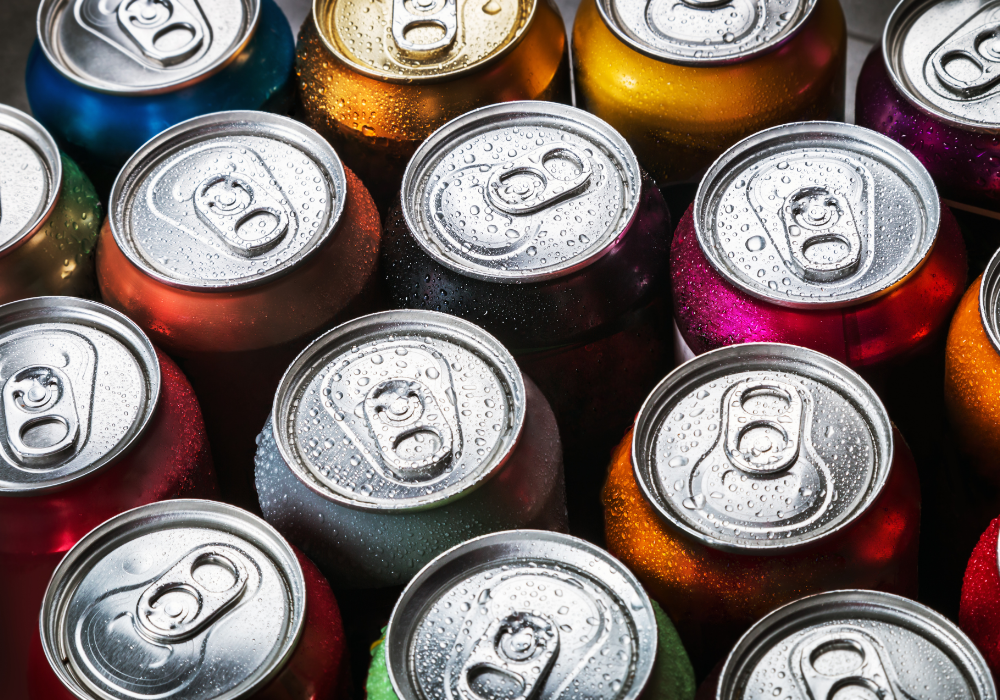
That fizzy drink might hit the spot, but regular soda consumption has been linked to decreased testosterone levels—thanks to blood sugar spikes, insulin resistance, and often, additives like BPA in bottle linings. Even diet sodas aren’t off the hook. Artificial sweeteners can disrupt gut health, which plays a surprising role in hormonal regulation. And when it comes to environmental impact, soda companies are among the world’s top plastic polluters.
Billions of single-use bottles and aluminum cans are produced every year, most of which end up in landfills, incinerators, or the ocean. Despite glossy recycling campaigns, the system simply can’t keep up. Drinking soda occasionally won’t ruin you—but the industry’s footprint, both hormonal and ecological, is massive and ongoing.
10. Store-bought baked goods are full of hormone-disrupting additives and palm oil.

Those muffins, cookies, and pastries from the grocery store may taste like comfort—but many are made with trans fats, high-fructose corn syrup, and preservatives that mess with hormone function. Some additives mimic estrogen in the body, while others spike inflammation, which reduces testosterone production.
It’s a lot of damage for something that barely qualifies as food. Most of these items also rely on cheap palm oil for texture and shelf life. As noted earlier, palm oil is one of the leading drivers of deforestation in Southeast Asia, pushing countless species toward extinction and decimating carbon-sequestering forests. So while the packaging might show cozy kitchens and “home-style” vibes, the reality is industrial food made from ingredients that harm your body—and leave scorched earth in their wake.
11. Fast food meals combine multiple hormone disruptors in one wrapper.

Fast food doesn’t just derail your diet—it’s a perfect storm of hormone-disrupting ingredients. The meat is often raised with growth hormones. The buns are loaded with refined sugar. The sauces are packed with seed oils and preservatives. And it’s all wrapped in packaging coated with PFAS, the “forever chemicals” linked to hormone disruption and testicular issues.
Environmentally, it’s even worse. Fast food chains are notorious for sourcing ingredients from factory farms, using throwaway plastics, and generating massive amounts of food and packaging waste. The entire model is built on speed, scale, and disposability—with little regard for health or habitat. One burger might feel like a small indulgence, but multiplied by billions, it becomes a planetary burden—and a slow drip of endocrine chaos.
12. Energy drinks tank testosterone and power an unsustainable supply chain.
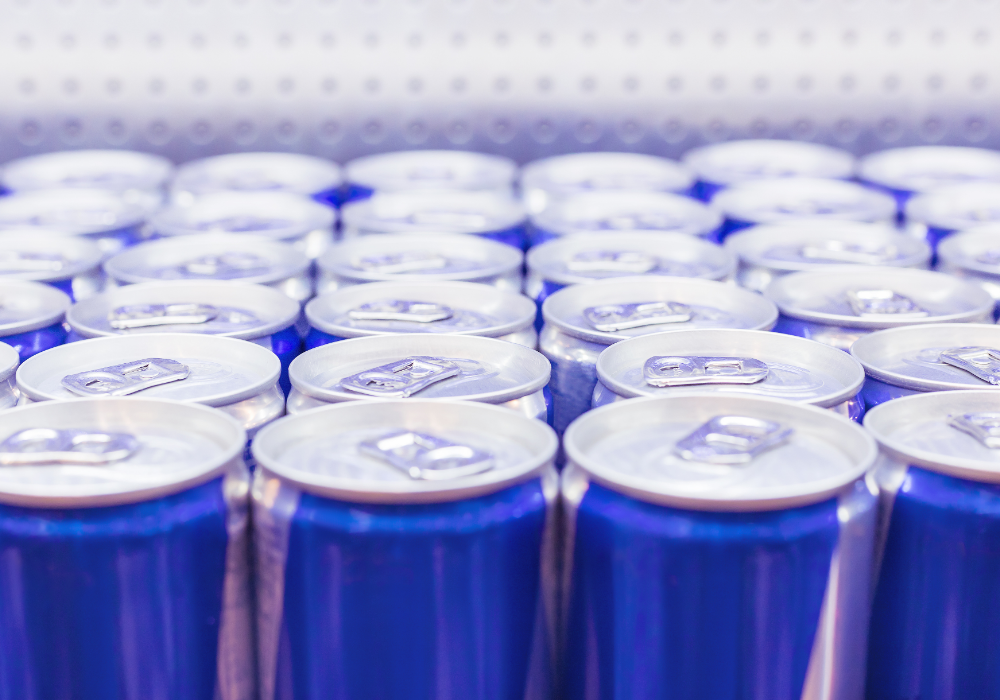
That midday boost from a flashy can comes at a cost. Energy drinks are loaded with caffeine, sugar, and synthetic stimulants that can spike cortisol and disrupt testosterone production over time. High caffeine intake is also linked to sleep disruption—another known testosterone killer. And some ingredients, like taurine or B vitamins, are made synthetically in ways that raise questions about long-term health effects. From an environmental angle, energy drinks are resource-heavy to produce and package.
They come in single-use aluminum cans with plastic seals, wrapped in branded boxes, often shipped globally. And they’re marketed in a way that encourages daily consumption rather than occasional use. It’s all flash, no sustainability. If you’re reaching for energy this way every day, both your body and the planet are footing the bill.